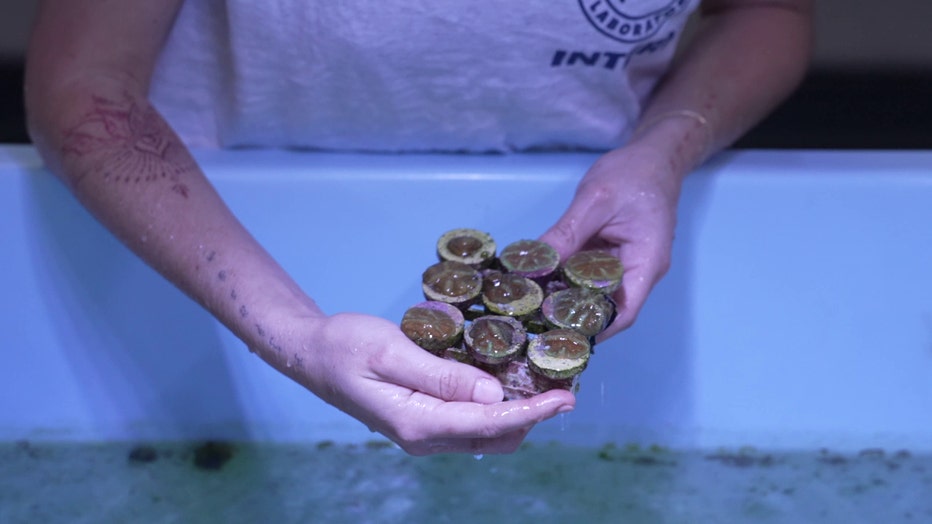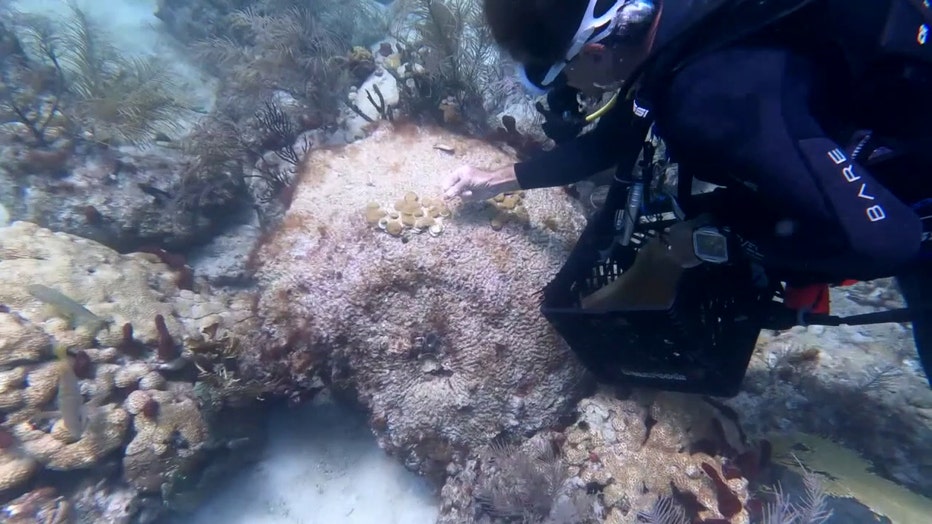Mote Marine's International Coral Gene Bank offers hope for coral reefs on Florida coast
SARASOTA, Fla. - Mote Marine Laboratory in Sarasota County houses its International Coral Gene Bank. It's a beacon of hope for coral reefs along Florida's coastline and beyond.
This innovative initiative aims to safeguard corals by focusing on selective gene research, searching for resilient genotypes that exhibit tolerance to both diseases and warm waters.
The Gene Bank, situated within the Mote Aquaculture Park, serves as a sanctuary for corals from Florida’s coral reef and Caribbean reefs, with future plans for expansion into the Indo-Pacific regions of the world.

READ: Brisket Shoppe in West Tampa serves fresh BBQ
"Unfortunately, because we have such stressful conditions out on the reef here in Florida, we really have to study what coral can survive these threats that aren’t going away," said Erin Muller, the director at Mote’s International Coral Gene Bank. "So, a lot of our research goes into studying them by exposing them to different high water temperatures or diseases and understanding what makes each coral special."
Mote scientists underscore the urgency of their mission, revealing that over the past 50 years, more than 90% of Florida’s coral reef system has been lost. Within the confines of the Gene Bank, meticulously designed recirculating holding systems, monitored by advanced technology, create an optimal environment for corals.

Each system, equipped with redundancy measures, can accommodate up to 128 adult corals or a substantial number of fragments. The Gene Bank also features dedicated ex-situ spawning systems, specifically crafted to enhance coral gonad maturation and synchronous spawning.
MORE: Learn the art of bonsai at Brooksville olive tree orchard
This technology plays a pivotal role in amplifying the genetic diversity of corals identified as crucial for restoration efforts through ongoing research.
As scientists at Mote Marine Laboratory and Aquarium work tirelessly to address the alarming decline of coral reefs, their focus on genetic resilience represents a critical step towards a more sustainable future for these vital ecosystems.

